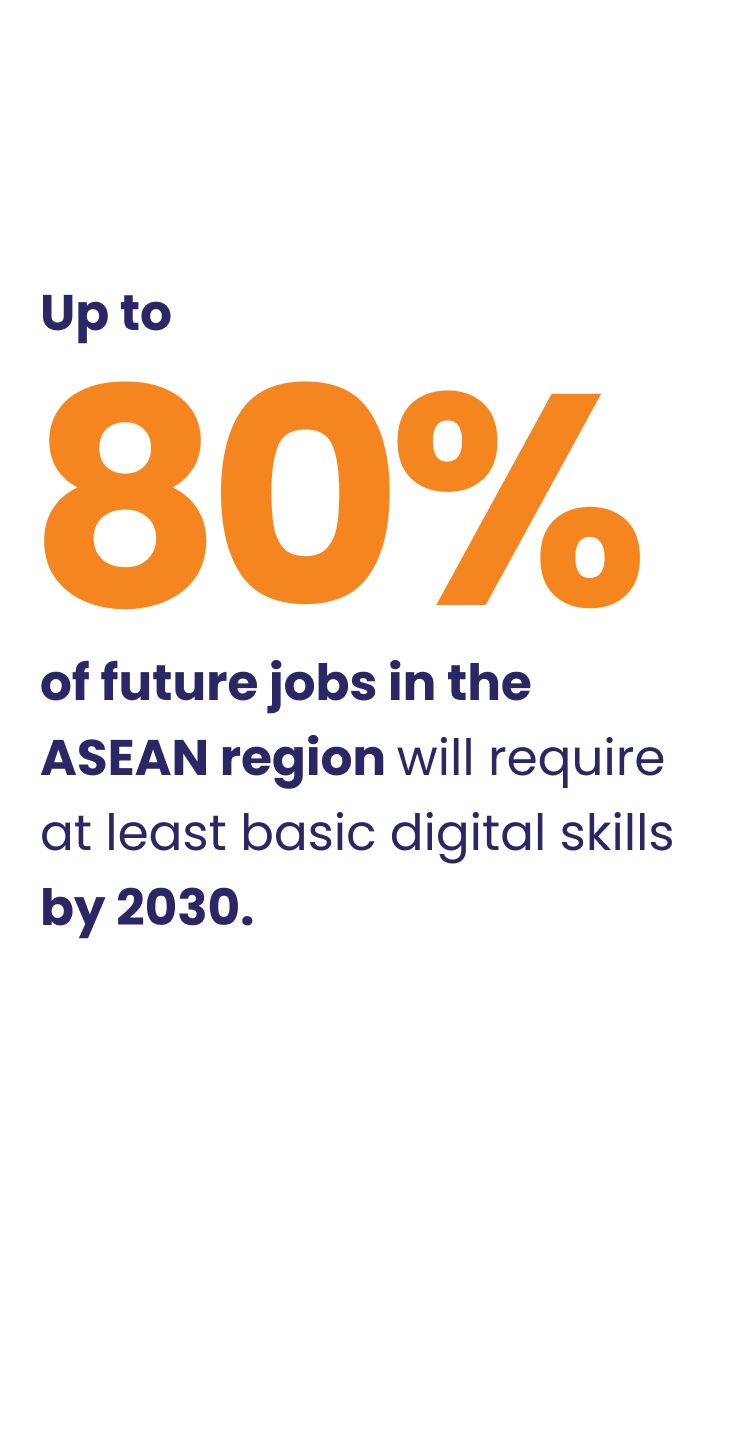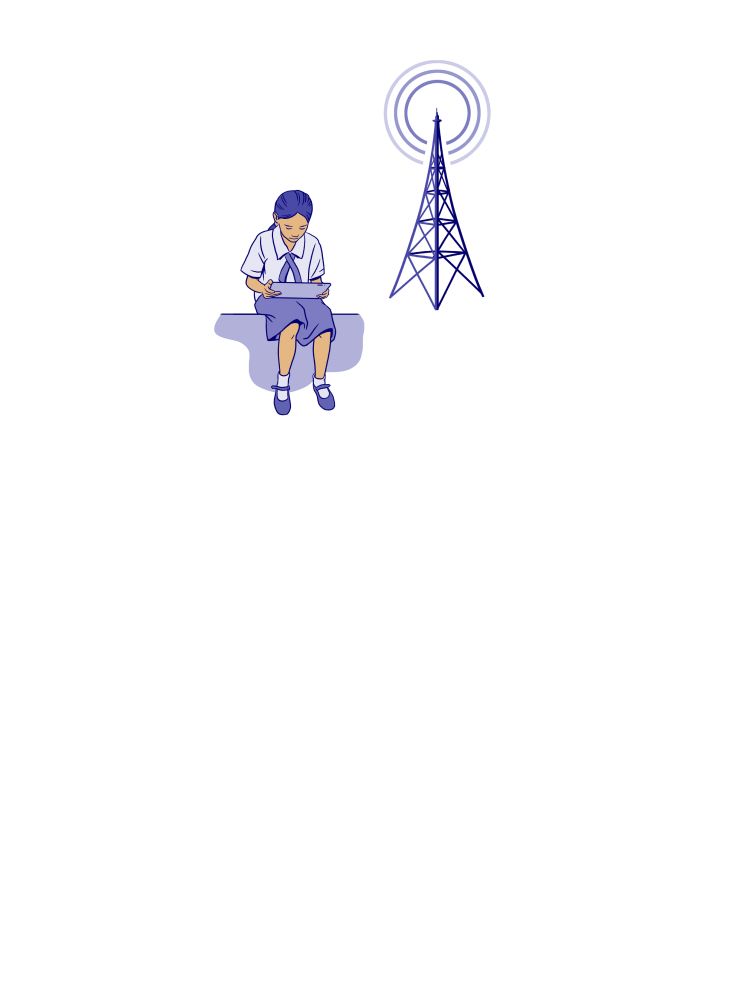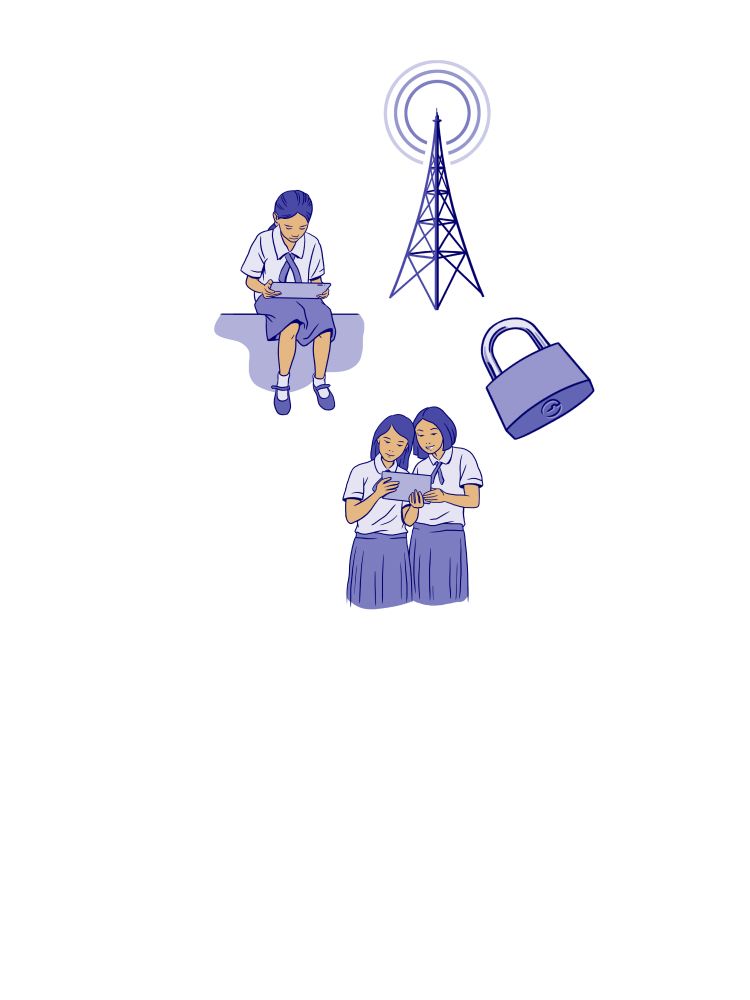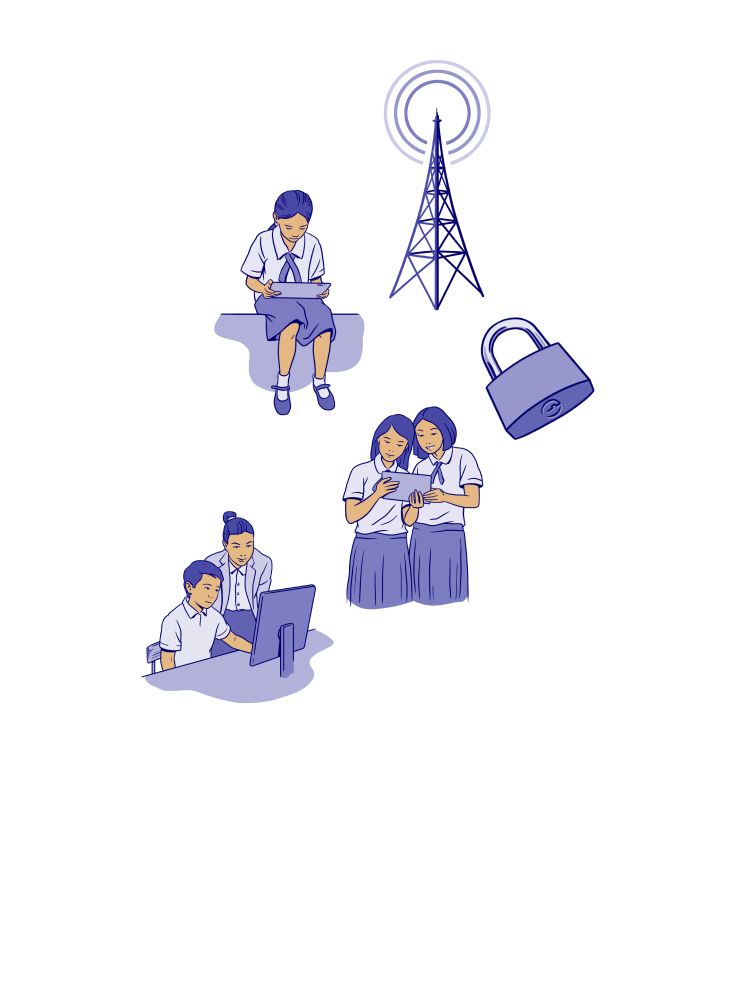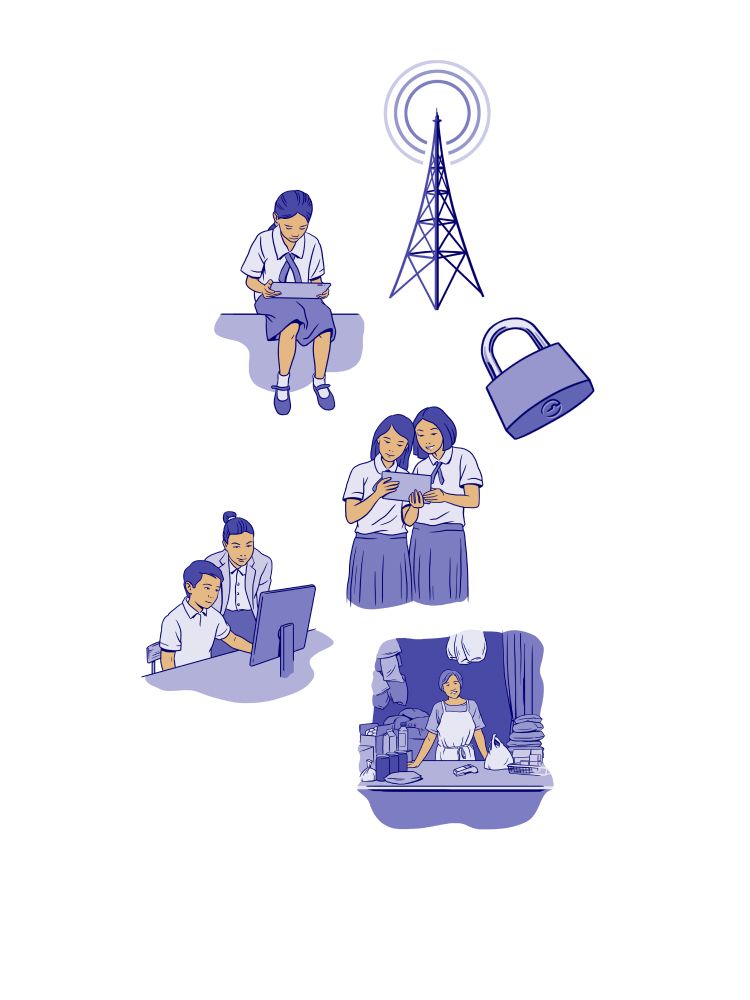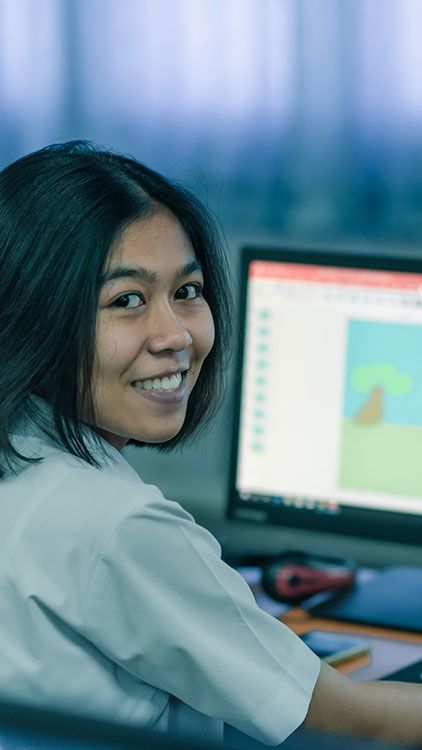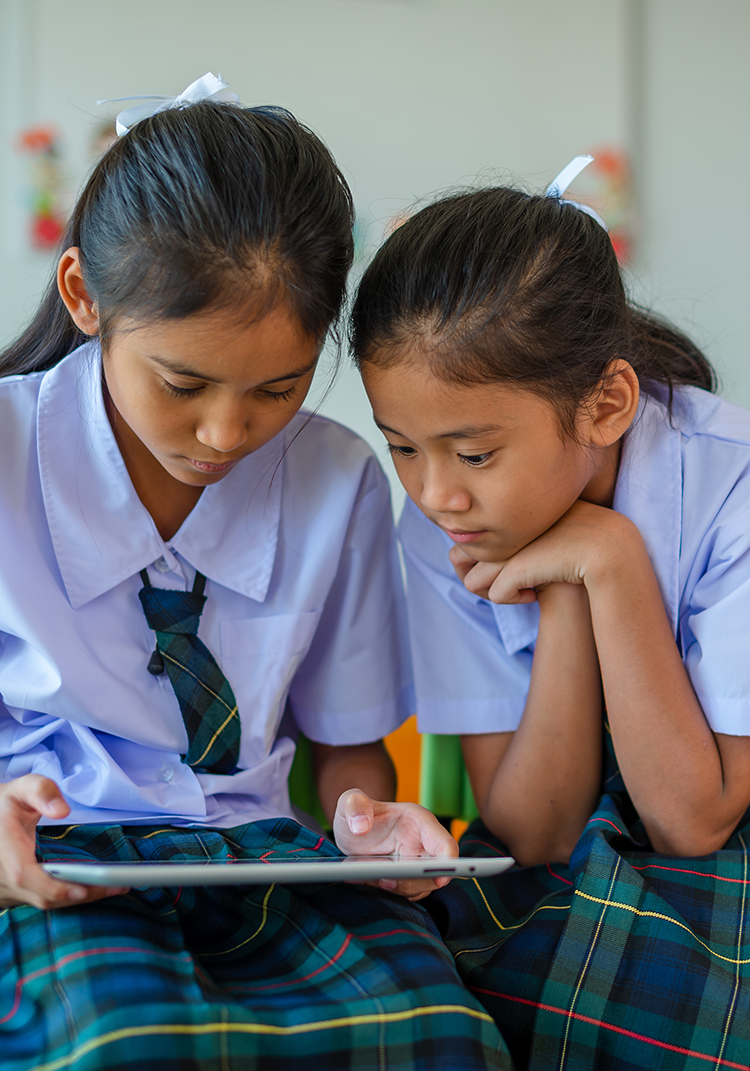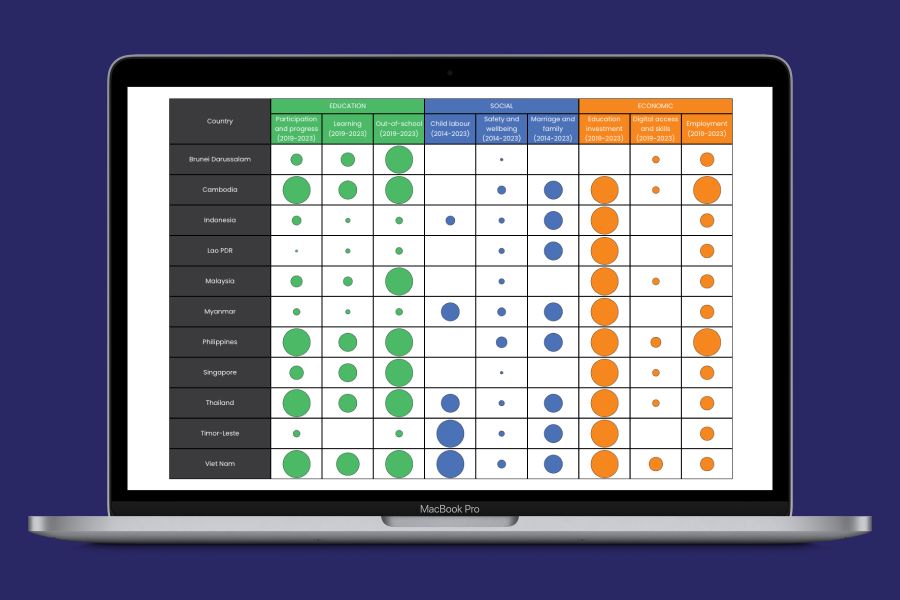Tackling gender barriers to basic digital skills for employment
Strategies for closing gaps in digital skills in the ASEAN region.

Digital skills are becoming increasingly important in employment and life for everyone. Girls and women have unequal access to technology and experience entrenched stereotypes and biases at home, school and in workplaces. Differences in educational opportunities compromise their ability to build the digital skills they need.
Over the next decade, the ASEAN digital economy will grow significantly and add a projected $1 trillion to regional GDP. To support this economic transformation, most of the region's workforce will need digital skills.
Gender-based bias to technology starts in the home. At school, while girls perform better in foundational learning, they are less likely than boys to acquire higher-level digital skills. The COVID-19 pandemic also highlighted the digital gender divide – girls who had no access to ICT in their homes were unable to continue their learning remotely.
In ASEAN countries, women are often employed in industries where they may have limited exposure to digital technologies. Therefore, their opportunity to develop digital skills in the workplace is limited. Workplace discrimination and unequal opportunities for career advancement, networking and entrepreneurship also impact women's ability to develop critical digital skills.
Several ASEAN frameworks and strategies guide and support member countries to build digital skills. They focus on developing digital talent, using digital technology for teaching and learning, digital readiness, and digital literacy as a tool for lifelong learning and employability.
The ASEAN UK-SAGE Programme will invest in evidence-based initiatives to tackle the gender barriers to basic digital skills for employment to ensure that all member states and citizens can realise the educational, social and economic benefits of being digitally literate.
The digital gender divide in ASEAN
Globally and in the ASEAN region, governments, NGOs and agencies agree that the digital gender divide must be closed. Girls and women must be equipped with the resources and capability to access and effectively use digital technology across their lifespan. Data available from the ASEAN region provides some insights into the barriers that girls and women experience when acquiring digital skills.
Meaningful access to ICT
Infrastructure and affordability
Challenges caused by inadequate infrastructure, poor connectivity and costly devices and data are exacerbated for those living in poverty, and in rural and remote areas. Girls have reduced access to digital technology, which limits their opportunities to build digital skills.
Broadband and data costs are significant in Lao PDR and Timor-Leste, particularly for rural populations. This limits their time online and the activities they can engage in.
On average, only 57% of students in the ASEAN region can access the internet at home. In Cambodia and Lao PDR, only 20% of students have access. The figure is marginally higher in Myanmar at 25%.
Across the region, between age groups, locations, and socioeconomic status, there are gender differences in the way the internet is used.
In Cambodia and Lao PDR, women aged 18-25 of low socioeconomic status use the internet less frequently than their male peers. Limited availability of content in local languages and insufficient localisation of digital tools reduces the relevance and usability of ICT for girls and women in certain communities.
Personal ownership
More males than females own devices such as smartphones or computers. This limits girls’ and women’s access to a range of education and employment opportunities, as well as information about essential services. While these women and girls may live in households with digital devices, this does not mean they have ownership or autonomy over their use. Affordability issues are likely exacerbated for girls and women because of poverty or the lack of control over finances.
Within the same household in Lao PDR, adolescent girls are 8.5% less likely to own a mobile phone than adolescent boys, 6.2% less likely in Viet Nam, and 4.8% less likely in Timor-Leste.
Online safety
Many children in the ASEAN region have been exposed to negative or risky experiences online, and this is worse for girls. Parents’ and caregivers’ concerns about online safety, security and privacy may prevent them from allowing girls and women in their household to actively use ICT.
Adolescent girls in Indonesia, Malaysia, the Philippines, Thailand and Viet Nam reported feeling less safe online than boys (32% compared to 26%).
However, owning a device can potentially enhance digital safety and security. Girls and women who own, rather than share, their device can implement privacy measures, secure their data, and control access to personal information.
Developing digital literacy
Informal learning
Young people often develop their digital skills informally when using mobile phones. Friends and peers play an important role in helping girls learn how to use mobile phones. These social networks can help increase their motivation and interest in learning by raising their awareness of the relevance of technology in their lives.
A survey of 8,000 adolescent and young adults across the ASEAN region (61% female) found that support from others, particularly friends and siblings, played a key role in helping them to develop their digital literacy.
However, informal learning is more suited to those who have already mastered the basics. For girls and women, inequity in access to education on digital skills and ICT can be a significant barrier to the development of digital literacy.
ICT infrastructure and digital skills at school
Many schools in the ASEAN region, especially in rural areas in Cambodia, Lao PDR, and Timor-Leste, lack the necessary ICT infrastructure, qualified teachers, and dedicated curriculum to effectively teach digital skills. This is the case even in the region’s high-income countries. Embedding digital skills into other subjects offers more equitable access to skill development opportunities. If girls could be taught digital skills using cross-curriculum approaches rather than as an independent subject, they may experience fewer gender-based barriers to their participation.
The percentage of teachers who have not received pre- or in-service ICT training ranges from 3% in Viet Nam to 65% in Cambodia and Lao PDR.
Additional hurdles exist for children who do not speak the language of instruction or cannot read the language of the digital content. For example, girls in ethnic minority groups in Lao PDR have low levels of digital skills.
Gender norms and expectations
Gender bias in teaching, resources and curriculum can discourage girls from engaging with digital skills development at school, by reinforcing stereotypes that certain subjects or skills are more suited to boys. Despite the socio-cultural norms that need to be addressed, teaching of digital literacy remains largely gender-blind.
More than 50% of teachers surveyed in Cambodia, Timor-Leste and Viet Nam did not see a need to consider gender differences when teaching digital skills.
Career guidance and information also steer girls away from further education and employment opportunities requiring digital skills.
Applying digital literacy in employment
Informal employment
A staggering 244 million people in the ASEAN region make their living in the informal economy, undertaking work such as street vending, home-based work, small-scale business and platform work. The advantages of digital skills and literacy are beneficial and needed in these contexts. The ability to conduct financial transactions securely, connect with customers, and sell products, empowers women in the informal sector to use online marketplaces and e-commerce platforms.
Discrimination in the workplace
In the workplace, proficiency in using computers, software, and online tools will become increasingly essential. Unequal compensation may deter women from pursuing digital careers and reduce their motivation to develop digital literacy more widely for employment.
There are significant gender-based pay gaps in jobs that require ICT skills and fewer opportunities for women to be promoted in the ASEAN region.
Discrimination and preconceptions about gender roles perpetuate the notion that certain digital roles are more suited to men. This discourages women from careers in technology and hinders their access to digital literacy training and employment opportunities.
Challenges to developing girls’ and women’s digital literacy for employment
There are a number of challenges to defining, measuring and responding to the digital gender divide in the ASEAN region.
Defining digital literacy
The concept of digital literacy is not well understood and is often used interchangeably with digital skills. A shared understanding of terminology and agreement about skill levels will promote effective communication between ASEAN member states, educational institutions, businesses and individuals.
The UNESCO Institute of Statistics’ (UIS) definition of digital literacy for Sustainable Development Goal (SDG) indicator 4.4.2 offers scope for improving the digital literacy and skills of girls and women: ‘… the ability to access, manage, understand, integrate, communicate, evaluate and create information safely and appropriately through digital devices and networked technologies for participation in economic and social life’.
Frameworks can help identify and describe skills needed for the region and support monitoring. Relevant digital skills frameworks and assessments include the European Commission’s Digital Competence Framework for Citizens and UNESCO’s Digital Literacy Global Framework. Several ASEAN countries use commercially developed digital frameworks which tend to have a narrower ICT skills focus. Broader frameworks are needed to move beyond a focus on the use of devices and software to a more comprehensive set of digital capabilities that underpin agency and participation in education, social and economic contexts.
Measuring digital literacy
Digital literacy indicators need to measure what matters. The 7 SDG indicators that drive global data collection focus on access, connectivity and digital skills, but they are insufficient. These SDG indicators measure ‘access to’ digital resources; however, measuring ‘ownership of’ digital resources is critical.
Additionally, the SDG indicators collect data on specific self-reported ICT skills, such as copying or moving a file or folder, and minimum levels of proficiency in digital skills. The latter is new and measured through the Program for the International Assessment of Adult Competencies, with Singapore the only participating country in the region. Indicators that conceptualise digital literacy as narrowly defined tasks are limiting, an issue compounded by the poor reliability of self-assessment reporting.
There is limited internationally comparable data that disaggregates by sex and sub-populations. This hampers insights into the unique challenges faced by girls and women in marginalised groups. Measuring the digital gender divide over the lifespan is essential to comprehending how it evolves over time.
Responding to the digital gender divide
As outlined above, responding to the digital gender divide across the lifespan requires responses to a range of barriers that relate to individual and family circumstances, socio-cultural norms and expectations, the quality of schooling, and gender bias in education settings and workplaces. This requires collaboration between governments, education institutions, private sector organisations, workplaces and communities.
Promising initiatives
The ASEAN region has committed to building digital literacy to support economic transformation. The region is driving improvements by defining frameworks for digital skills standards and implementing a range of regional and country-level initiatives. These include initiatives that integrate technology into school curricula, upskill teachers and civil servants, and provide community training on basic digital skills, entrepreneurship and online safety.
The ASEAN-UK SAGE Programme conducted a comprehensive review of literature published between 2013 and 2024. The goal was to locate high-potential initiatives from the ASEAN region that support girls and women to develop the digital literacy and employability skills required to enter and thrive in the labour market.
The review identified 18 regional and country-level initiatives. Several promising approaches were found, however there is limited evidence of their impact. Many initiatives are small scale and context-specific, making them difficult to replicate.

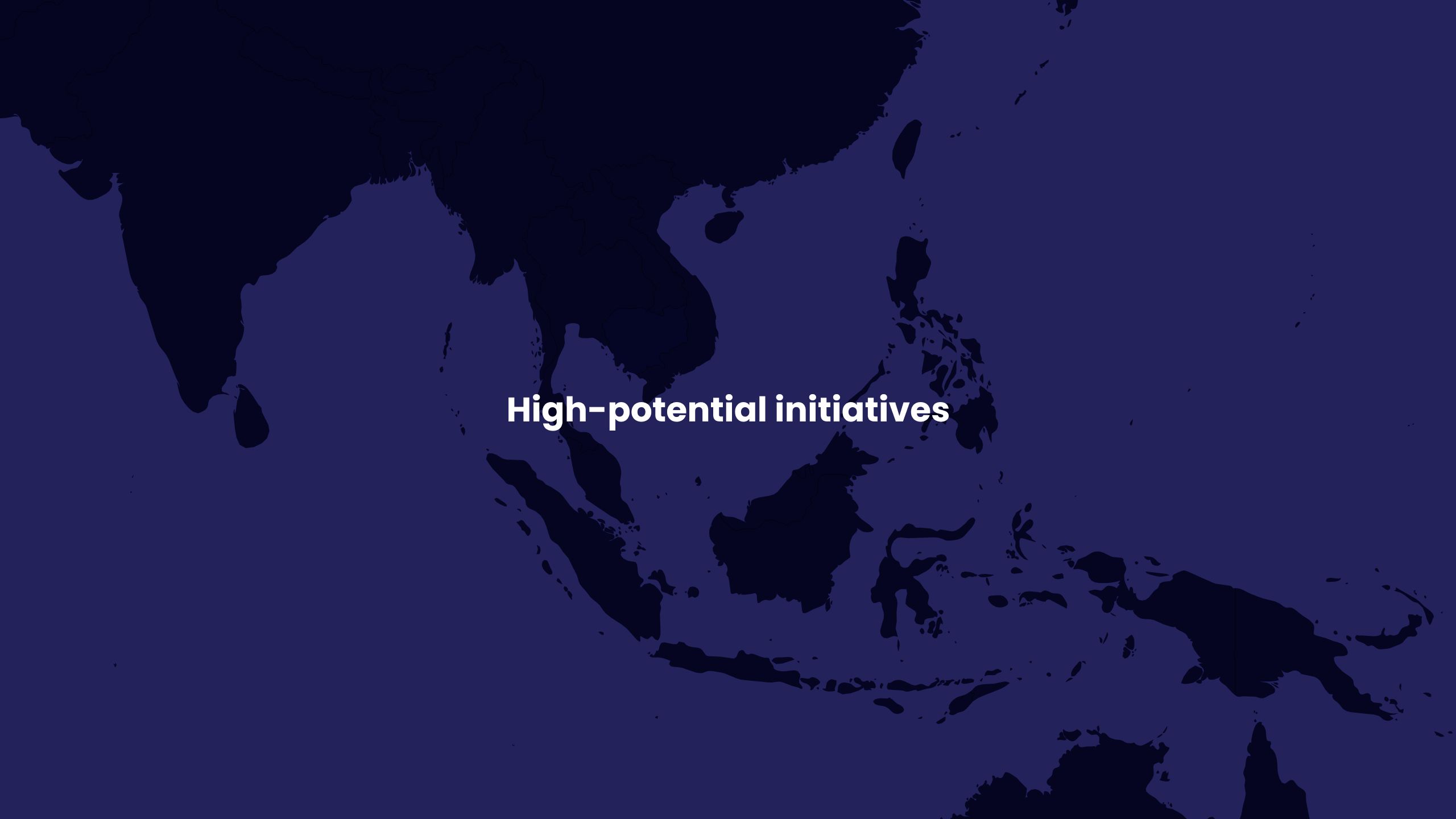
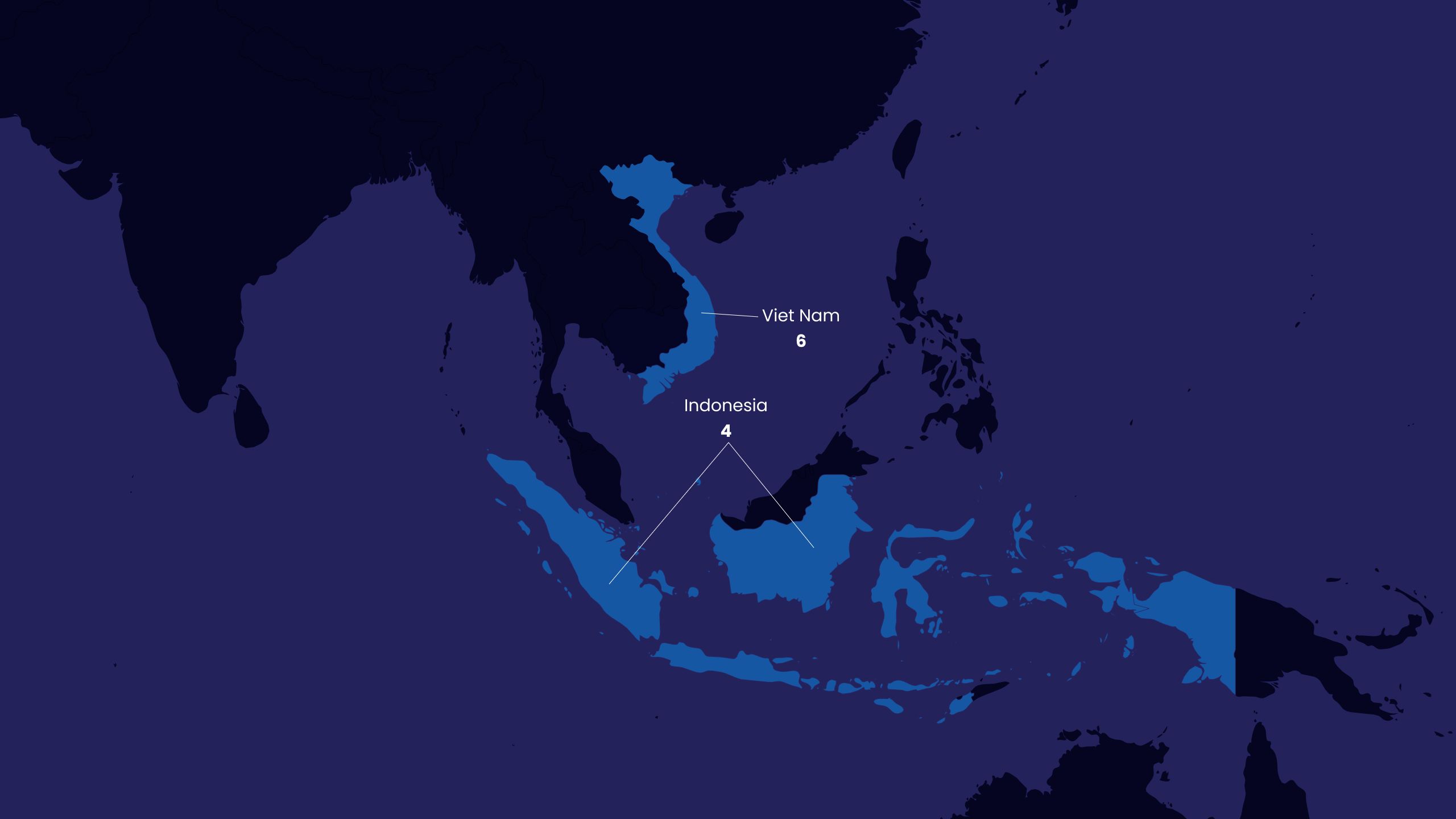
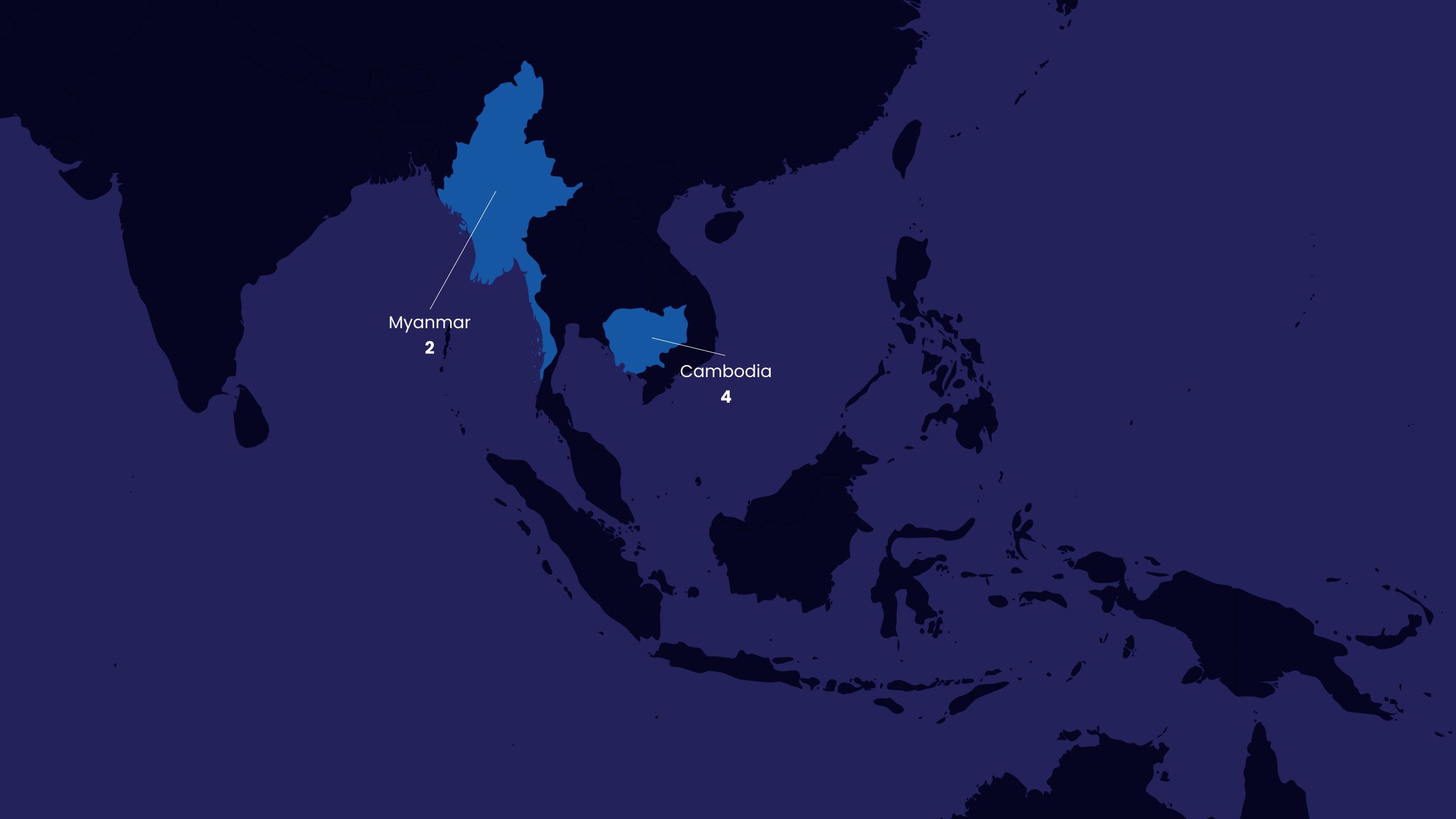
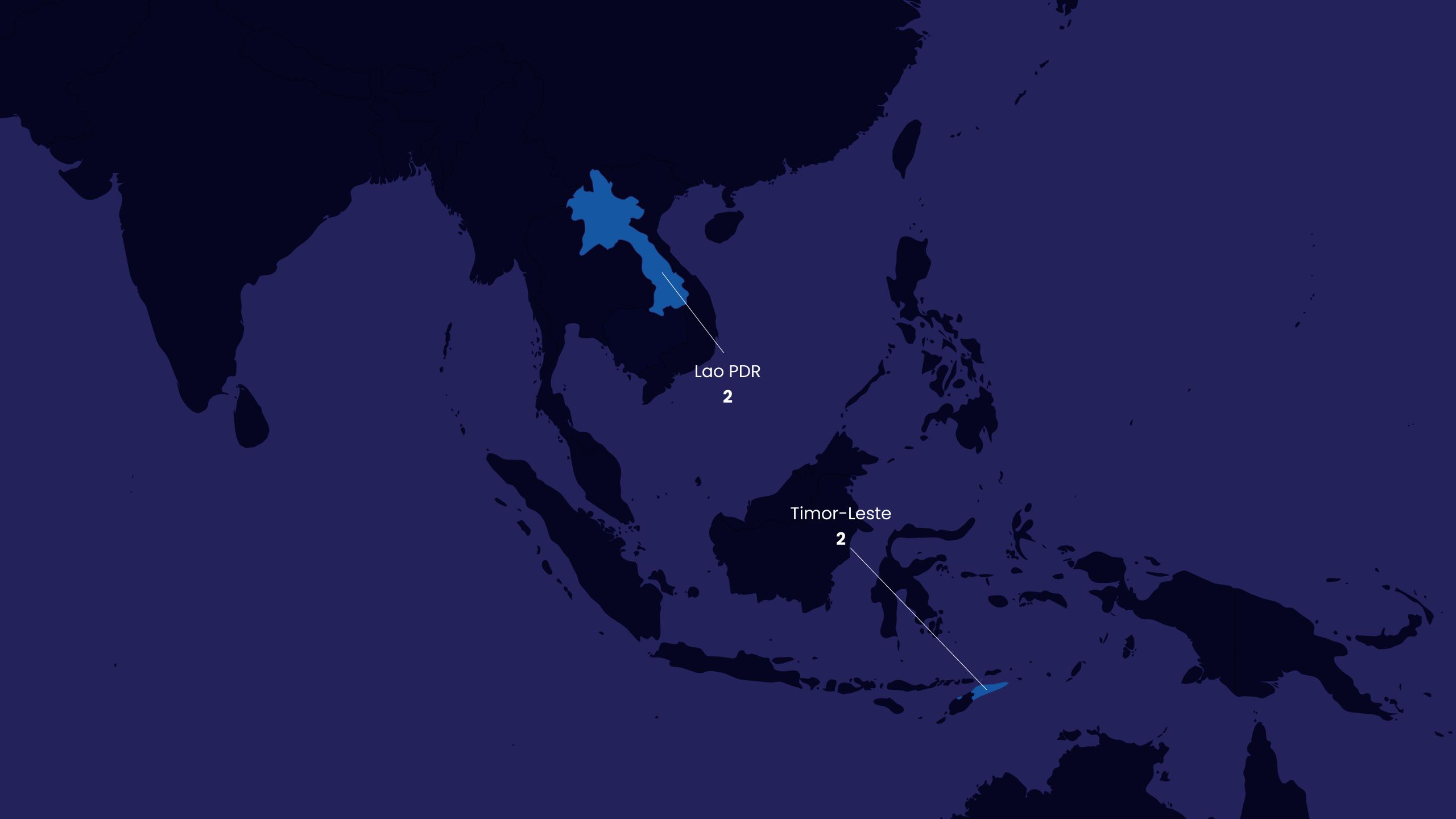
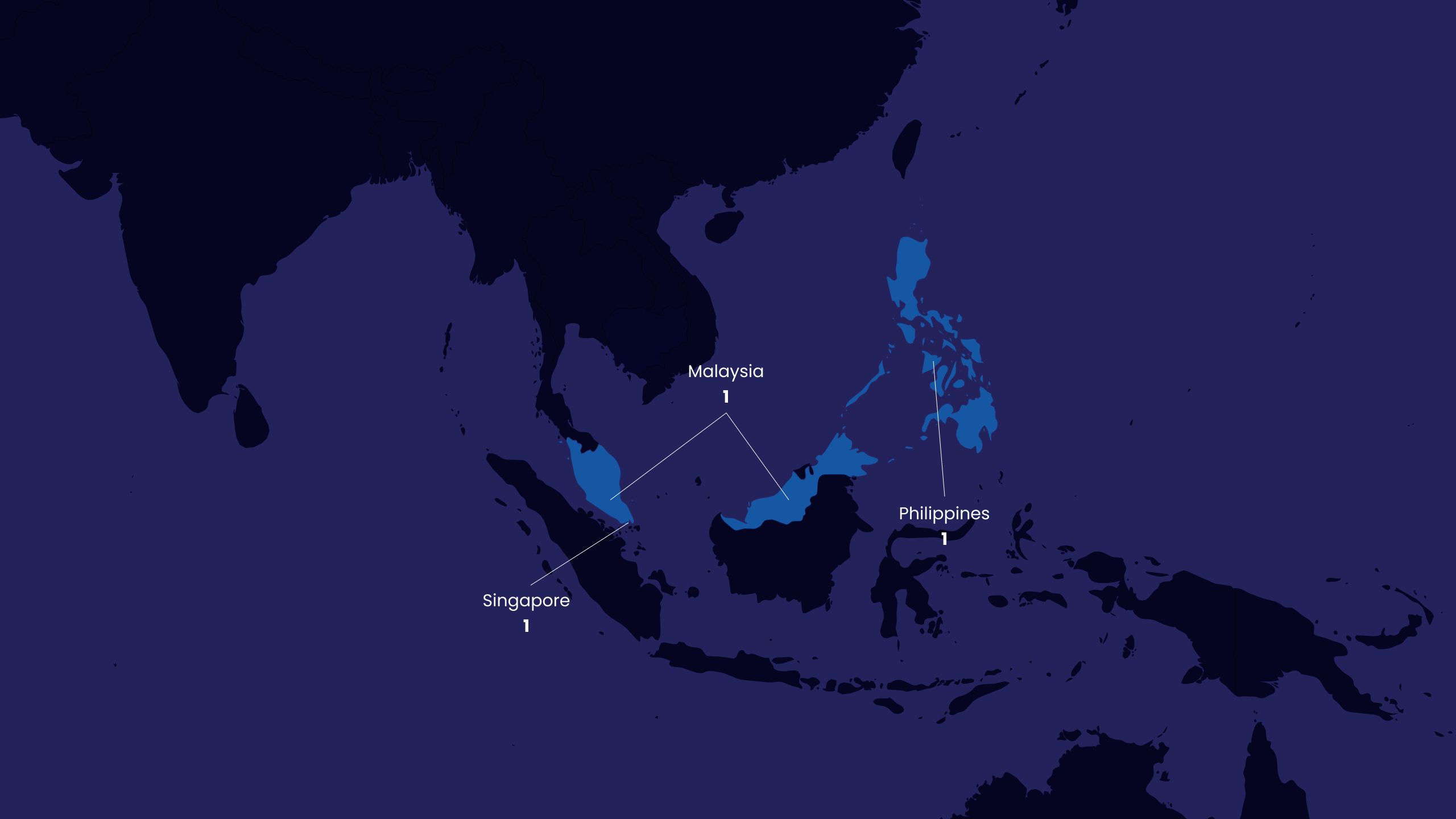
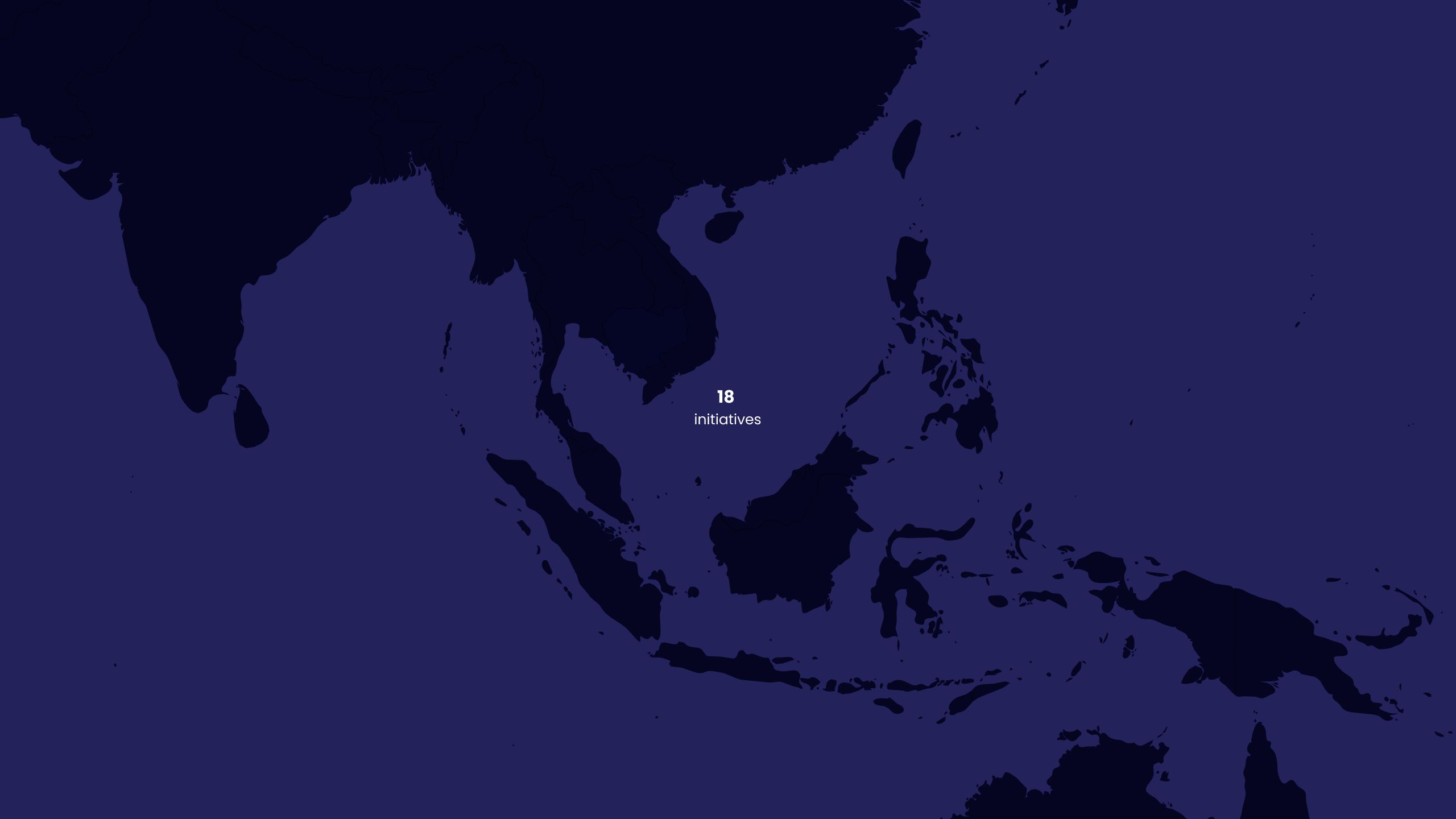
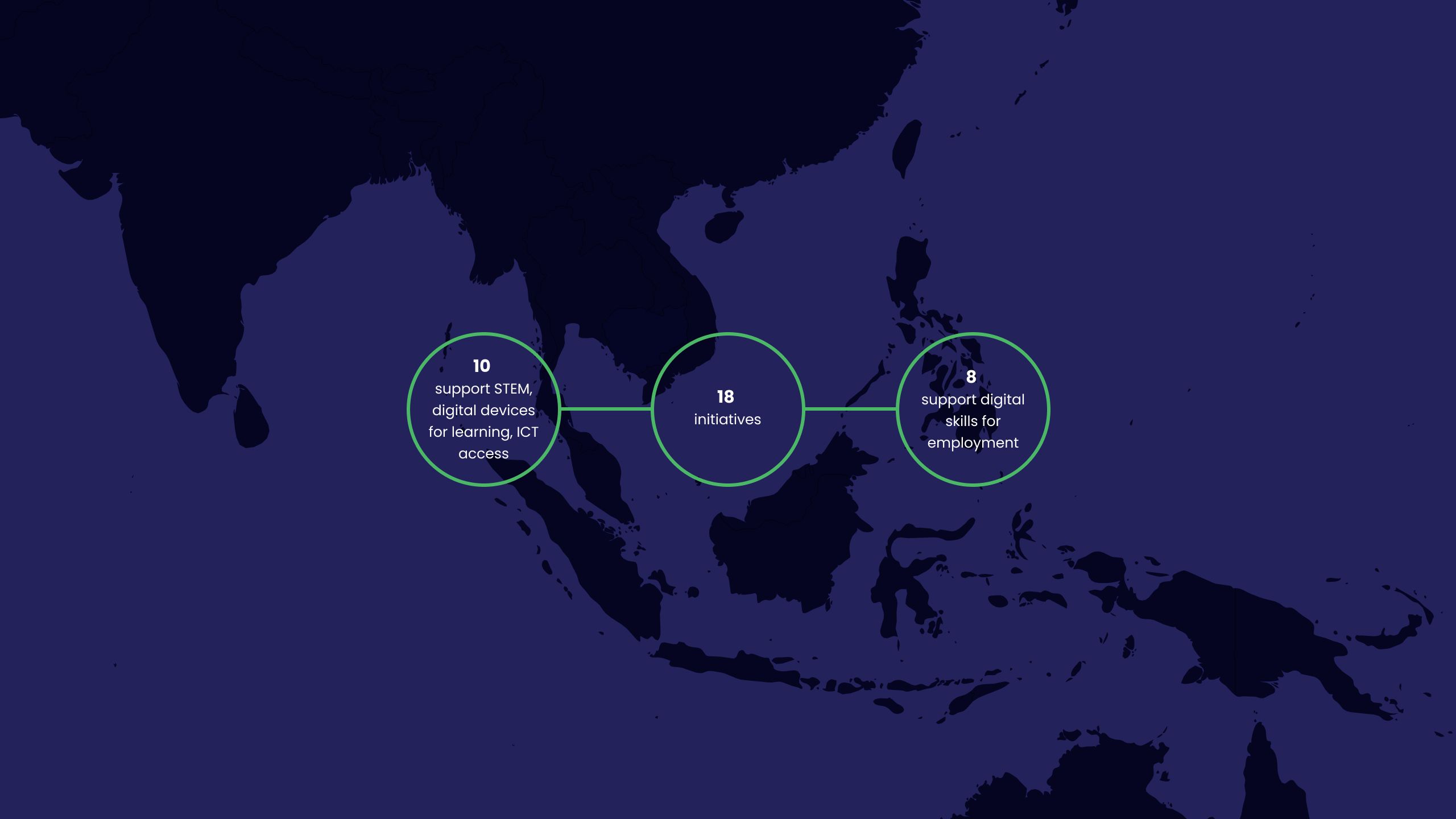
Female mentorship and networking
Women who work in technology inspire and support girls by negating gender-based stereotypes and demonstrating that technology provides a possible career pathway for girls.
The Sisterhood for Development initiative in Lao PDR involved youth mentorship and networking approaches to support Hmong ethnic women and girls. Internships trained these participants in digital skills in video editing and social media marketing skills, to support further development in their villages, schools and universities. Gender equity, wellbeing, and skills for economic development were also part of the initiative.
Taking a girl-centred approach to ICT
If girls are given the opportunity to work together on projects of interest in safe and supportive environments, they build confidence in their digital skills, and develop related soft skills such as creative thinking and problem-solving.
The UNICEF Skills4Girls initiative in Viet Nam works with girls in rural remote communities, and takes a girl-centred approach to skills building in STEM, digital technologies and social entrepreneurship. Over 400 teachers (67% female and 24% from ethnic minority groups) have been trained to deliver the curriculum in adaptive and collaborative ways using technology.
Training for business owners
Young women, especially in rural areas, often become entrepreneurs as a response to the lack of local formal employment opportunities; and to have the flexibility to balance earning and care responsibilities. Through targeted training, women can develop digital capabilities that can be applied to real-world situations.
Since 2020, Go Digital ASEAN has worked with governments, local partners and volunteers across the region to deliver digital skills training to small business owners and workers from underserved communities. Training is focused on women and includes business and financial literacy, digital marketing and cybersecurity, which empowers them to participate and maximise opportunities in the digital economy.
Scholarships
Scholarship programmes enable girls and women from marginalised communities to access new opportunities in safe, supportive learning environments.
The Cambodia Tertiary Scholarship Program has empowered marginalised young women to commence tertiary studies in business and education. It prepares women for study by providing training on English language, digital/ICT skills, and career development. The training also includes leadership motivation and communication skills.
CASE STUDY 1
Digital skills through ICT applications in Cambodia
Technovation Girls is a global competition that provides opportunities to girls aged 10-18 to develop digital skills, while working in teams to tackle real-word problems relevant to their community.
Girls develop and apply critical and creative thinking skills in tandem with digital skills to create ICT applications. The competition starts with a ‘kid-hack day’, and then continues with 12 weeks of training to acquire skills to identify relevant problems and explore digital solutions.
Women mentors help girls feel comfortable during sessions. A bootcamp focuses on promotional and communication skills, culminating in a national pitch when participants showcase their solutions to the public.
In 2023, the program focused on developing mobile app solutions to address social problems related to the SDGs.
Impact:
- 28 teams of Cambodian girls participated in the competition in 2023
- 12 Cambodian teams presented their projects to senior government officials at a national pitch event in 2023
- 2 Cambodian teams advanced to the semi-finals on the global stage in 2023
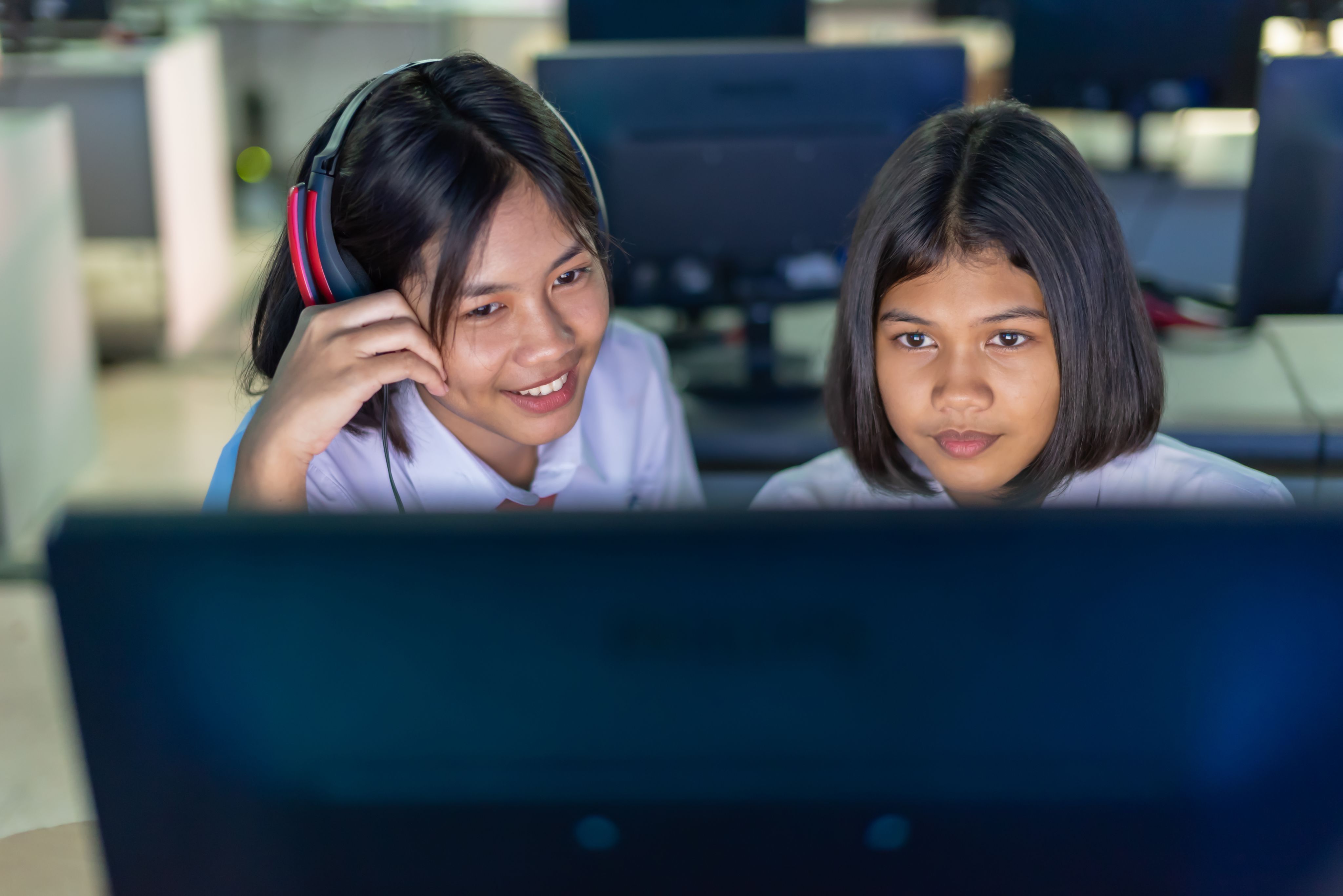
CASE STUDY 2
Case study 2: Digital and business skills for farmers in Viet Nam
Grow Asia – a multi-stakeholder platform established in 2015 by the World Economic Forum and ASEAN – partnered with Corteva Agriscience to support the economic empowerment of women farmers and agripreneurs in Southeast Asia, improving their productivity, incomes and resilience. The Train Her to Promote Resilient, Inclusive Value Chains and Economic Empowerment (THRIVE) initiative helps strengthen farm management, digital and business skills among women farmers, and provides networking and mentorship opportunities.
In Viet Nam, the initiative is directed towards the lives and practical needs of women farmers, farm-level influencers and agripreneurs. The training program includes a module on using a mobile phone to access information about climate and farming, and to establish online networks for women farmers. Business development, mentoring and networking events are also included.
Impact:
- 150 women farmers were trained in 16 provinces in the first 6 months
- participants reported using their mobile phone to access information relevant to agriculture instead of purely for telephone calls and SMS.
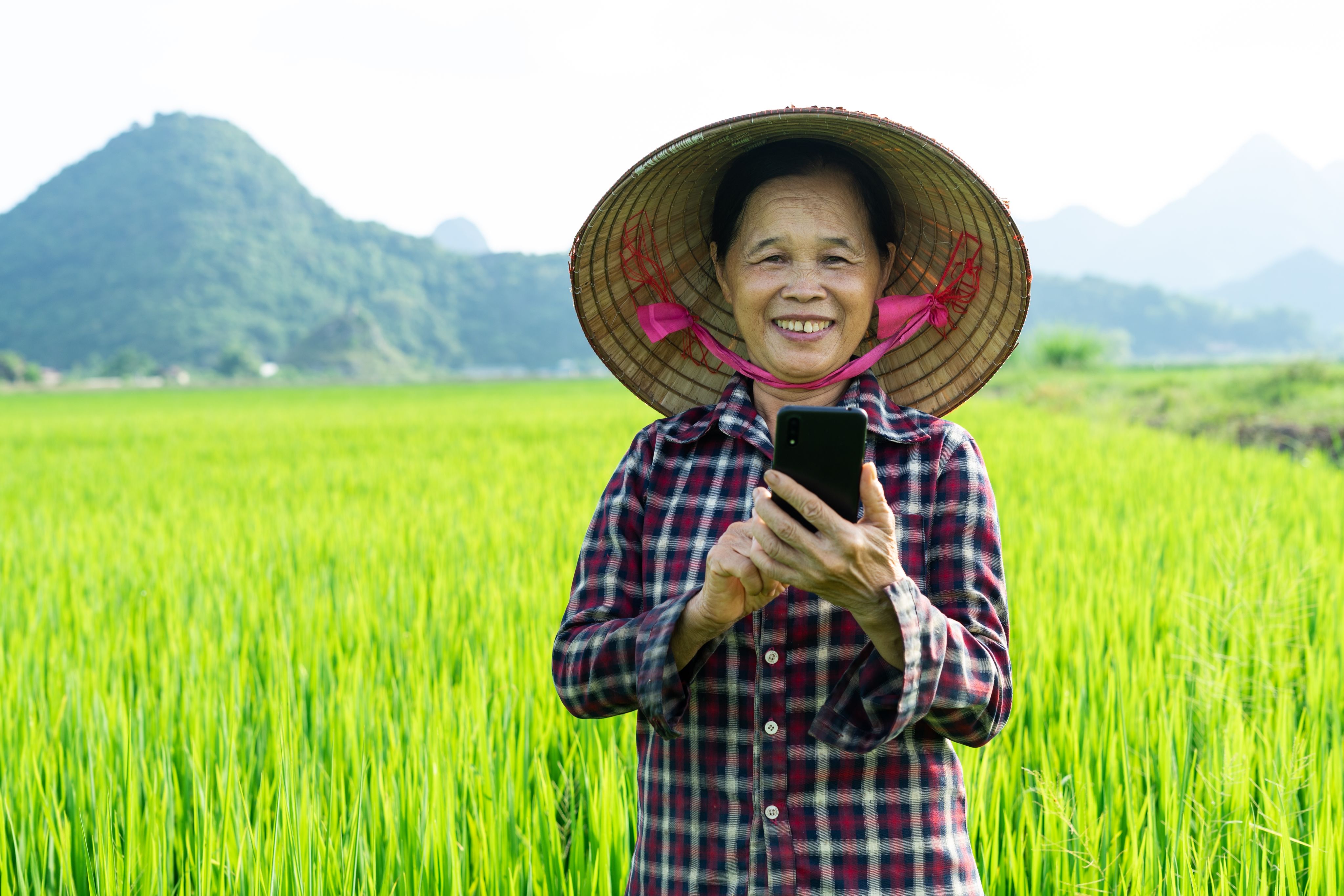

Where to next?
To fully benefit from a growing digital economy, ASEAN countries must address the digital gender divide. This will require a unified vision for digital literacy across the region, and a range of embedded and stand-alone initiatives that empower girls and women.
All initiatives require collaboration between partners at the regional, national and local levels. This includes ASEAN, SEAMEO, governments, education institutions, private sector organisations, workplaces, communities and learners.
Partners must work together to:
1 Encourage ASEAN countries to invest in the development of basic digital literacy and support accessibility for girls and women across the lifespan.
2 Support regional and national partners to use a unified framework to describe digital literacy.
3 Work with governments to build monitoring systems that measure meaningful digital connectivity and digital literacy across the lifespan of girls and women.
4 Embed the development of digital literacy across school curricula and provide teachers with training to build their digital literacy and pedagogical skills.
5 Ensure initiatives are designed in collaboration with girls and women, and include principles that involve female role models, project-based learning, real-world problem solving, and supportive learning environments.
6 Invest in outreach that targets workplaces, schools and communities to address the sociocultural norms that limit girls’ and women’s digital usage, skills development and career aspirations.
7 Partner with the public and private sector to ensure skills development initiatives meet the needs of industry, and provide girls and women with opportunities for experience through internships and scholarships.
8 Provide place-based opportunities for women to build meaningful digital literacy skills for entrepreneurship and lifelong employment.
9 Ensure investments build on national systems and structures, take a 'do no harm' approach, and include robust monitoring and evaluation mechanisms to understand impact.
10 Build a common platform in the ASEAN region to exchange skills and expertise, identify new technology and showcase initiatives that can work at scale.
More research
Learn more about the challenges facing girls and women in the ASEAN region and opportunities to better support them.
This study has been conducted by the Australian Council for Educational Research
as part of the ASEAN-UK SAGE Programme thematic pillar studies. ASEAN-UK SAGE is an ASEAN cooperation programme funded by UK International Development from the UK government.



